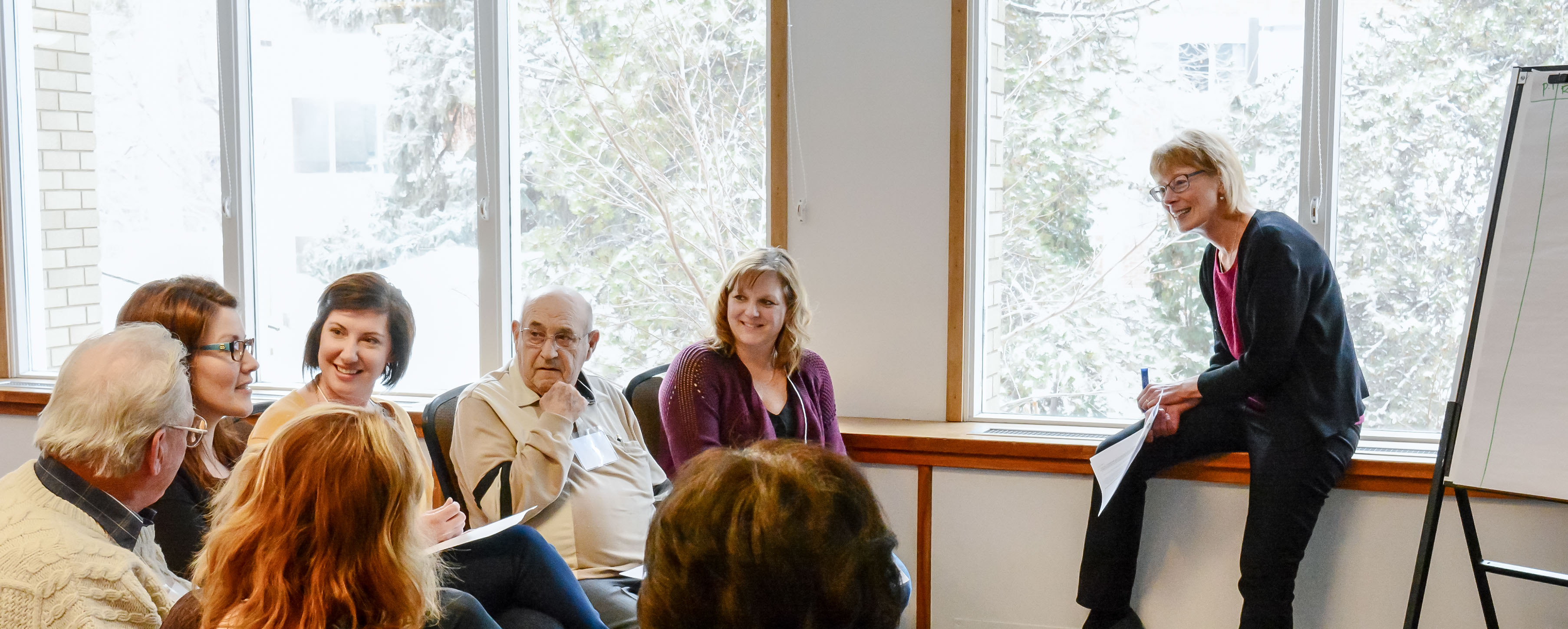HOME > LEARNING > EVENTS > CKM EVENTS > Learning Collaborative
Innovation Learning Collaborative Workshop Series
Working Collaboratively to Accomplish Improvement
Dr. Sara Davison and her team received a three year grant to develop a Provincial Conservative Kidney Management (CKM) Pathway to provide sustainable, high-quality, evidence-based care for patients unlikely to benefit from dialysis. Implementation of the pathway was piloted in four Chronic Kidney Disease Clinics in the Northern Alberta Renal Program. To successfully implement the pathway the Kidney Supportive Care Research Group, in partnership with the Kidney Health Strategic Clinical NetworkTM, facilitated an Innovation Learning Collaborative.
The CKM Learning Collaborative spanned 15 months (Sept 2016-Nov 2017) and included a series of three Learning Workshops spaced a few months apart. The purpose of these workshops was to empower outpatient providers to improve care for Conservative Kidney Management patients using a collaborative, team-based approach and ongoing evaluation. Improvements were tracked using a performance measurement tool known as a balanced scorecard. Each teams built a balanced scorecard to measure the quality of care and services provided based on six dimensions of quality: acceptability, accessibility, appropriateness, effectiveness, efficiency and safety. Teams selected at least one indicator from each dimension of quality. The indicators could be a process (e.g., letters sent to primary care) or an outcome measure (e.g., symptom burden). After building their Scorecard, teams created practical Action Plans to develop strategies on how to measure and improve their indicator scores. In between the workshops, participants were engaged in Action Periods, which involved testing best practice ideas in local settings. Teams were encouraged to network with each other during and between the workshops and dedicated CKM project staff provided regular coaching and support. Changes are incremental, but expected to progress to wider and more significant clinical change.

Over 60 participants from the CKM pathway pilot kidney clinics and healthcare professionals from a variety of care settings attended these sessions. These workshops were also open to those patients, family members, and community care providers interested in learning more about conservative kidney management. Consultants who are frontline providers and managers from home care, home palliative care, palliative care, facility living, supportive living, emergency department, seniors health, and family physicians attended to provide knowledge of the healthcare system beyond the renal clinics so that the staff could prepare a practical plan that considers the continuum of care.
Workshop #1
Date: Sept 29, 2016
At the first workshop, the Innovation Collaborative process was explained, and the aims and expectations were clarified so participants have a full understanding of the work involved. They are introduced to the concepts of quality improvement and collecting data. The teams were supported to develop a balanced scorecard and action plan for improvement using their baseline data.

Workshop #2
Date: Apr 6, 2017
The clinics had an opportunity to share their successes and challenges while caring for clients on the CKM pathway. In addition to learning about community collaborators, teams had an opportunity to review where they were focusing their efforts, modify their quality indicators and update their action plans.
The teams were also introduced to the interactive Patient Decision Aid developed around the appropriate initiation of CKM versus dialysis.

Workshop 3#
Date: Nov 21, 2017
The teams celebrated their achievements, shared their success stories, reviewed their Balanced Scorecard results and updated their actions plans for continued improvement. The attendees also participated in a World Café to brainstorm ideas for sustainability of the CKM pathway.

To view more events and newsletters related to the CKM Pathway please visit the www.CKMcare.com.
Vision: To help people enjoy life while living with advanced chronic kidney disease by becoming a world leader in kidney supportive care research and clinical innovation.







